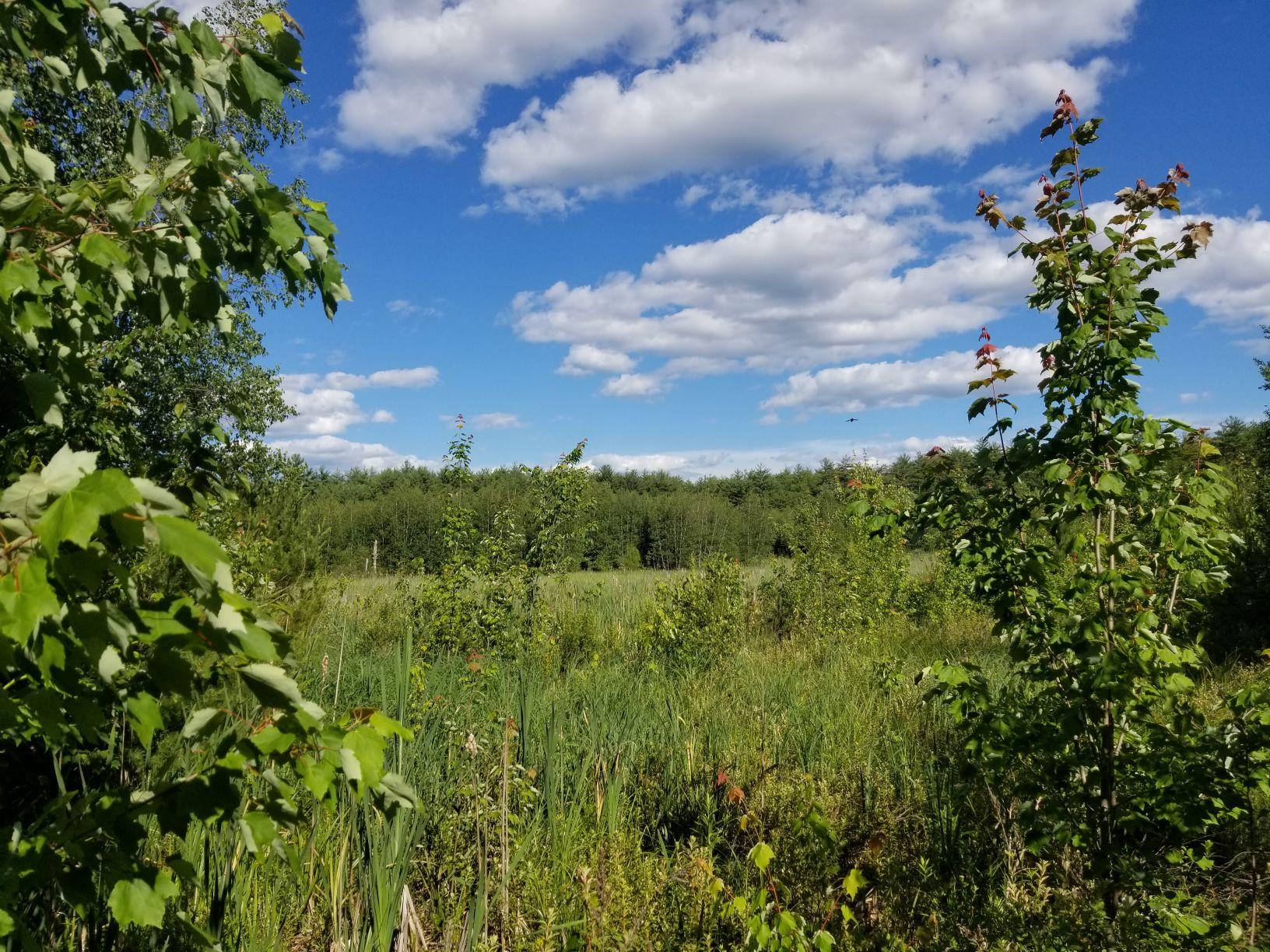- Tags:
- Land Conservation

The Champlin Forest already hosts a restored wetland and woodland trails are easily accessible from the main parking area off Route 108.
The Society for the Protection of New Hampshire Forests is delighted to announce that on August 29, 2022, it purchased 122 acres of forestland and wetlands adjacent to the existing 185-acre William H. Champlin, Jr. Forest in Rochester, with help from many supporters.
“We are so pleased that this acquisition will not only enhance the natural resources protected as part of the Champlin Forest, but also provide an even greater recreational asset in the heart of Rochester, a city of more than 31,000 residents,” said Jack Savage, president of the Society for the Protection of New Hampshire Forests.
This land will be permanently conserved and open to the public thanks to combined contributions of $465,000 from numerous sources. More than 250 individual donors from surrounding communities made gifts to the fundraising campaign and the Adelard A. and Valeda Lea Roy Foundation awarded a grant of $7,500. The Rochester Conservation Commission contributed $200,000 from its Conservation Fund and funding from two state grant sources were essential to this project, a $115,000 grant from the New Hampshire Land and Community Heritage Investment Program (LCHIP) and a $110,000 grant from New Hampshire Department Environmental Services Aquatic Resource Mitigation (ARM) Program.
“The expansion of the Champlin Forest helps preserve Rochester’s open space and further connect our community to the outdoors,” said Ryan O’Connor, city planner with the Town of Rochester. “We’re thankful to the Forest Society, the Conservation Commission, individual donors, and all the partners that worked to make this happen. Opportunities like this help to balance growth and provide lasting benefits to the community and environment.”
The 185-acre William H. Champlin, Jr. Forest was donated to the Forest Society in 2006 by Virginia Spaulding Champlin in honor of her late husband. At the time, the Champlins donated an additional 122 acres to another local nonprofit, Homemakers Health Services, now a part of Easterseals of New Hampshire. It is this property that the Forest Society purchased and reunited with the 185-acre Champlin Forest.
“LCHIP is pleased to support the Forest Society’s Champlin Forest expansion, which will improve access to outdoor recreation close to home for residents of Rochester and Somersworth, two of New Hampshire’s largest communities,” said Paula Bellemore, executive director for the Land & Community Heritage Investment Program.
“Completing the Champlin project has been very rewarding personally,” said Lori Sommer, wetlands mitigation coordinator with the NH Department of Environmental Services, Water Division. “In 2005, I was involved in negotiations with the Champlin family and federal agencies concerning mitigation for the nearby Skyhaven Airport. That resulted in the breaching of two dams and 185 acres of land conservation of the original William H. Champlin, Jr. Forest. This 122-acre Forest Society addition significantly expands protection in a highly developed landscape, results in a connected habitat for wildlife, and furthers mitigation goals to protect water quality of the Cocheco River watershed.”
The Champlin Forest already hosts a restored wetland and woodland trails are easily accessible from the main parking area off Route 108. The Forest Society plans to celebrate the expansion of the Champlin Forest with a winter walk to be scheduled later this year.
ABOUT THE FOREST SOCIETY
The Forest Society is a non-profit land trust and forestry organization established in 1901. The Forest Society owns 191 forest reservations constituting nearly 60,000 acres that provide wildlife habitat, walking trails, and watershed protection in 105 New Hampshire communities. In partnership with private landowners, the Forest Society protects an additional 135,000 acres by holding more than 750 conservation easements statewide.
ABOUT NEW HAMPSHIRE’S LAND AND COMMUNITY HERITAGE INVESTMENT PROGRAM
The New Hampshire Land and Community Heritage Investment Program is an independent state authority created by the legislature in 2000. LCHIP’s legislative mandate is to ensure the perpetual contribution of natural, cultural, and historic resources to the economy, environment, and quality of life in New Hampshire. LCHIP does this by providing matching grants to New Hampshire municipalities and non-profits to conserve and preserve the state’s most important natural, cultural, and historic resources. The program has provided 530 grants which have helped to conserve close to 300,000 acres of land for food production, water quality, ecological values, timber management and recreation and has supported projects to study and rehabilitate 324 historic structures and sites. Grants have been awarded in all parts of the state and in 179 of New Hampshire’s 234 communities. Fifty-four million dollars of state money have led to a total project value of more than $312 million. The money for LCHIP grants comes from fees on four kinds of documents recorded at the Registry of Deeds in every county of the state.
